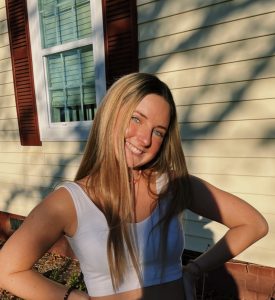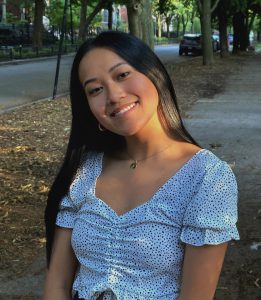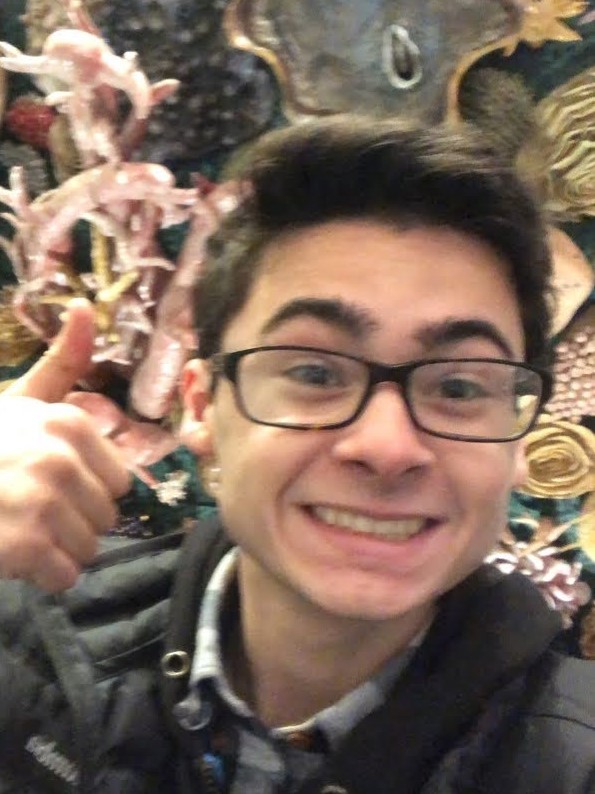One Writing Center Consultant’s Process for Writing a Literary Analysis Thesis Statement

Cailey Rogers is a class of 2024 Writing Center consultant. She is studying Journalism and English Literature. At Elon, she is a Communications Fellow and is involved in Elon Learning Assistance, Colonnades Literary and Art Journal, and the Pendulum. In my short time at Elon, I have found that the most challenging and rewarding part of writing a long literary analysis paper is the thesis statement. It’s funny how just one small portion of what can become an eight-page essay seems impossible to accomplish. If you feel that way, you are certainly not alone. Even English majors struggle with it – I can say that from personal experience! That is exactly why I decided to share the tips and processes that have helped me the most when writing a literary analysis thesis statement in hopes that it could help others staring at a blank document, not knowing where to start…
Read MoreHow to Write an Effective Literary Analysis Thesis Statement

Cailey Rogers is a class of 2024 Writing Center consultant. She is studying Journalism and English Literature. At Elon, she is a Communications Fellow and is involved in Elon Learning Assistance, Colonnades Literary and Art Journal, and the Pendulum. I distinctly remember that when I was in middle school and just beginning to learn how to write essays, the most daunting task was crafting a thesis statement. Back then, my teachers would put so much emphasis on one part of the entire paper; now that I’m in college, I understand why. Writing a thesis statement hasn’t become easier over time for me. In fact, now that I am writing complex papers for my 3000-level classes, it has proved to be even more challenging. But honestly, I have come to appreciate this part of a paper to the point where I cannot write the body paragraphs of my work until I…
Read MoreHow to Face and Conquer Writer’s Anxiety

Hi, I’m Sofie Campbell. I’m a member of the class of 2024, double majoring in Marketing and English Literature and minoring in Professional Writing and Rhetoric. I also work as a Writing Center Consultant. There comes a time in every writer’s life when they must do the unthinkable: allow someone else to read their writing. It happens to the best of us, myself included. Sharing your writing for the very first time can be an intimidating prospect, especially when first entering college. It can sometimes be an uncomfortable experience, especially if you’re prone to writer’s anxiety. What’s writer’s anxiety? Here’s some common scenarios: “I sit down but then choke.” “I paralyze myself by overthinking.” “I feel completely unprepared.” “I’m terrified that my ideas won’t be good enough.” If you’ve ever experienced one of these thoughts before writing or during writing, it may have been writer’s anxiety. This can lead to writer’s…
Read MoreConsidering Audience When Writing

Hi! My name is Caroline Murphy and I’m an English major with a concentration in education with a minor in TESOL. I’m a member of class of 2024 and work as a consultant in the Writing Center. There’s a lot to consider when beginning the process of writing, whether you’re writing for an assignment or your own enjoyment. When starting to write, one question that’s important to ask yourself is: “Who am I writing for?” The person or group of people you expect to read your work, and therefore who you’re writing for, is your audience. In this blog, I’ll be discussing some helpful tips for how you can consciously consider your audience while writing. The easiest audience to identify is yourself. Whether you’re journaling, making a to-do list, or doing other personal writing, you’re your own audience. However, if you’re writing for another person or group of people, you…
Read MorePassive vs. Active Voice

Hi, I’m Ellie Banfield, a class of 2024 Writing Consultant. I’m majoring in English Literature, and I have experience with blogging, creative writing, and professional writing. Have you ever been told to change your writing from passive to active? I know I have, and I also know this can be a frustrating comment to receive if you aren’t sure what the difference is between passive and active voice. If you can relate to this, then you’ve come to the right place. This post will discuss the differences between active and passive voice, and help you avoid confusion in your own writing. Let’s start by making sure we’re clear on what passive and active voice is. In a passive sentence, the subject is acted upon by the verb. For example: Your glasses were broken. We don’t know how the glasses were broken or who broke them, but we do know it’s…
Read MoreWriting Tips To Make Your Writing More Effective & Enjoyable

It’s harder to stay motivated and engaged when you lack interest in your topic. Here are 4 tips to help you get interested in your writing and to stay on task!
Read MoreWriting and Brainstorming For Any Presentation

You are not alone if you have ever dreaded having to give a presentation, speak to a professor, or attend a job interview. However, when you know the rules and are adequately prepared, it is much easier to express yourself and impress the person on the other side of the PowerPoint slides.
Read MoreWords Enact Change: Supporting Social Justice in The Writing Center

In this blog post, I offer some strategies used by Writing Center consultants to work towards a more inclusive language practice in The Writing Center.
Read MoreYou’re Required to Go to The Writing Center. Now What?

Sometimes, when I am required to do something, I immediately want to do that thing less, even if it’s something I want to do or had already planned to do like a household chore. The Writing Center is not immune to this aversion. Occasionally you might be required to attend a Writing Center appointment even if you think you don’t want or need to. So, I’m here to talk about how to make the best of this situation and to get the most out of it.
Read More